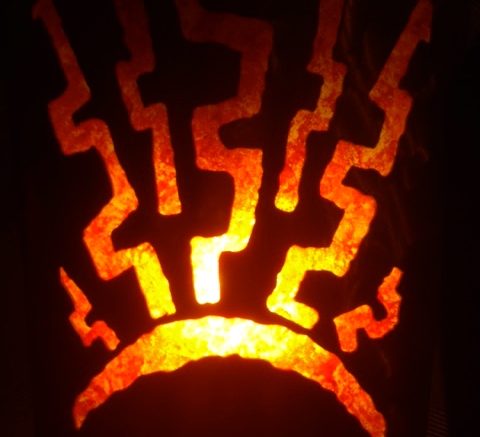A substantially large part of the planet becomes uninhabitable.
The Real News Network (7/25/19)
Climate scientist Michael Mann discusses the increasing frequency and severity of heat waves, just as the US, Europe, and India are experiencing this summer.
*****
‘Unprecedented’: More Than 100 Arctic Wildfires Burn In Worst Ever Season
Huge blazes in Greenland, Siberia and Alaska are producing plumes of smoke that can be seen from space.
By Edward Helmore
The Guardian (7/26/19)
The Arctic is suffering its worst wildfire season on record, with huge blazes in Greenland, Siberia and Alaska producing plumes of smoke that can be seen from space.
The Arctic region has recorded its hottest June ever. Since the start of that month, more than 100 wildfires have burned in the Arctic circle. In Russia, 11 of 49 regions are experiencing wildfires.
The World Meteorological Organization (WMO), the United Nations’ weather and climate monitoring service, has called the Arctic fires “unprecedented”.
The largest blazes, believed to have been caused by lightning, are located in Irkutsk, Krasnoyarsk and Buryatia. Winds carrying smoke have caused air quality to plummet in Novosibirsk, the largest city in Siberia.
In Greenland, the multi-day Sisimiut blaze, first detected on 10 July, came during an unusually warm and dry stretch in which melting on the vast Greenland ice sheet commenced a month earlier than usual.
In Alaska, as many as 400 fires have been reported. The climatologist Rick Thomas estimated the total area burned in the state this season as of Wednesday morning at 2.06m acres.
Mark Parrington, senior scientist with the Climate Change Service and Atmosphere Monitoring Service for Europe’s Copernicus Earth ObservationProgramme, described the extent of the smoke as “impressive” and posted an image of a ring of fire and smoke across much of the region.
Thomas Smith, an environmental geographer at the London School of Economics, told USA Today fires of such magnitude have not been seen in the 16-year satellite record. …
Read the Rest and 1+-Minute Video
- Intense Arctic Wildfires Emitted As Much CO2 In June As Sweden Does In A Year — Arctic wildfires, some the size of 100,000 football pitches, emitted as much carbon dioxide (CO2) last month as the country of Sweden does in a whole year, the World Meteorological Organization (WMO) said on Friday. … Read the Rest
-
Over 200 Dead Reindeer Found On Norway’s Arctic Svalbard — Oslo: Researchers have found more than 200 reindeer that died of hunger on Norway’s Arctic archipelago of Svalbard, public broadcaster NRK reported on Saturday. The catastrophe happened due to climate change and lack of food, and has never been this big, said three researchers from the Norwegian Polar Institute. The institute has mapped the wild reindeer stock on Svalbard for 40 years as it is a key species for understanding the tundra ecosystem, Xinhua news agency reported. … Read the Rest
*****
A 21st-Century William Blake: As Scientist James Lovelock Celebrates His Centennial Birthday He Continues To Rewrite Our Future
Editorial
The Guardian (7/25/19)
James Lovelock, the scientist and writer, is 100 years old on Friday [7/26] and remains a combination of environmental Cassandra and Old Testament prophet. Unlike them, though, he changes his mind about what the future holds. Foolish consistency, Emerson wrote, is the hobgoblin of little minds, and Dr Lovelock’s mind is not little. More than 10 years before the record high July temperatures, Dr Lovelock flatly told the Guardian that 80% of human life on Earth would perish by 2100 because of the climate emergency. He imagined a dystopian end of humanity where “the few breeding pairs of people that survive will be in the Arctic where the climate remains tolerable” by the end of the 21st century.
As a scientist (his first letter to Nature was published in 1945, on the subject of writing on petri dishes), Dr Lovelock’s life has been studded with insight. He invented an electron capture detector that could pick up minute traces of pollutants – such as the pesticides that spurred Rachel Carson to write the 1962 book Silent Spring. At home he built instruments that ended up on Mars, helping Nasa to establish that the red planet was lifeless.
The Novacene
Dr Lovelock’s imagination has not narrowed, but his vision has become bleaker with time. His new book Novacene: The Coming Age of Hyperintelligence proposes that the 300,000-year Anthropocene era of Earth’s human domination is ending. Novacene is a new age where our species is doomed to a worse fate than clinging on for dear life at the north pole as previously imagined. Instead we will become lackeys of cyborgs able to think 10,000 times faster than humans. We will be kept on to ensure there are habitable temperatures for these superior intelligences.
Novacene’s thesis is a straight-line extrapolation of Dr Lovelock’s breakthrough idea which he began to develop while a consultant at Nasa in the 1970s; the thought that the planet was a superorganism. In 1974, he and biologist Lynn Margulis proposed the Gaia hypothesis, which holds that Earth is in some way alive. The paper suggested our planet metabolises and responds to changes in its environment to survive. In bestselling books such as The Revenge of Gaia, Dr Lovelock argued that humans have exploited Earth and the “old lady” would eliminate us unless we treated her with greater reverence. That is why the Novacene will start, he now reasons: because a superintelligence will recognise that all living tissue will be consumed by climate crisis and will act with Gaia to keep the life going.
When it came out, the Gaia theory immediately chimed with the incipient green movement. …
*****
Vernon County Youth Watch-Party to #ChangetheDebate
Tuesday, July 30, 2019 / 5:30-9:15 P.M.
The Ark / 401 E Jefferson / Viroqua, WI 54665


